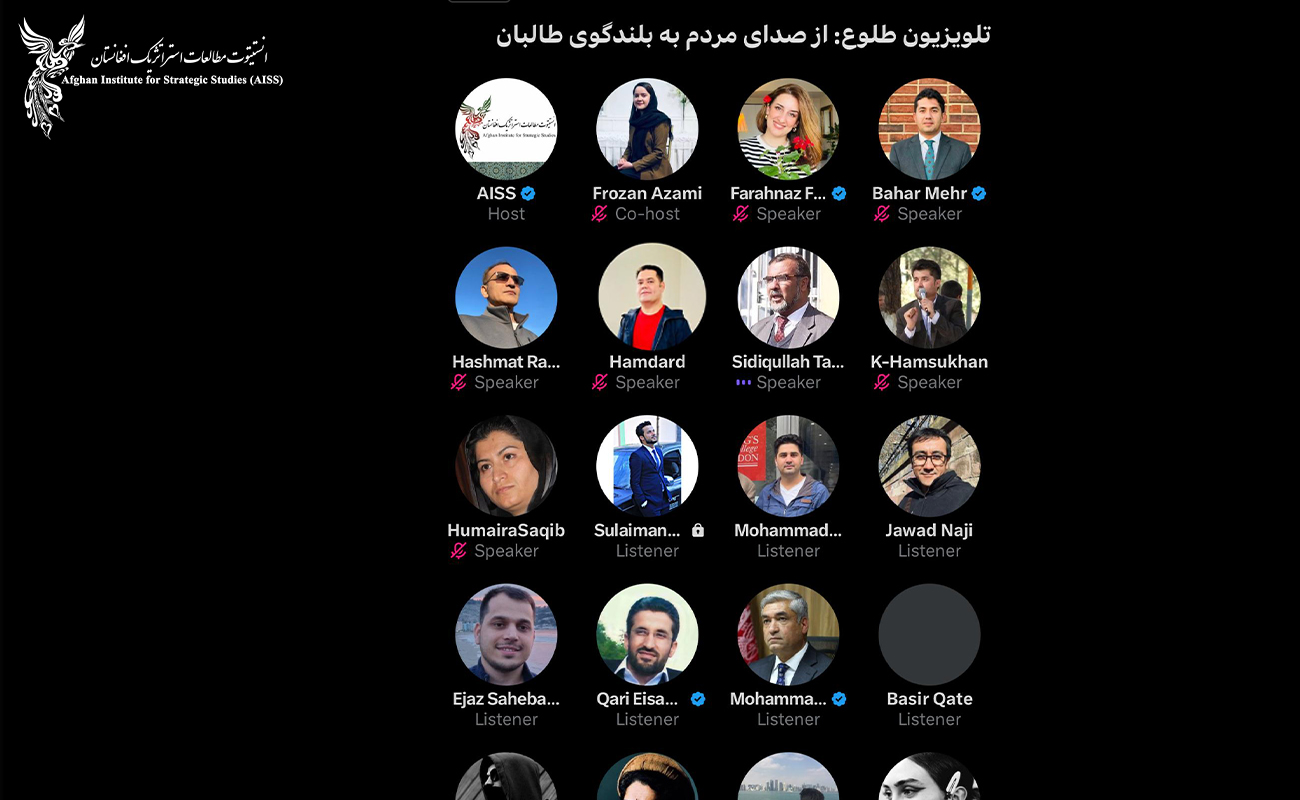SpaceX: "Tolo TV: From Democratic Platform to Taliban’s Mouthpiece"
On May 13, 2024, the Afghan Institute for Strategic Studies hosted a discussion on X-Space titled "Tolo TV: From Democratic Platform to Taliban’s Mouthpiece" which explored the issue of media freedom under the Taliban regime.
According to media organizations and journalist support groups, freedom of expression and the operation of free and impartial media have become impossible since the Taliban's return to power. The ruling regime not only does not tolerate any word or deed that goes against their Taliban and Islamic values, but they also respond with severe censorship and suppression.
The media, especially free and impartial media, play a constructive and vital role in shaping and directing public opinion as the fourth pillar of democracy. Yesterday's free media are today being used as a platform and pulpit to whitewash and normalize the Taliban and their narrative to the Afghan people. This is despite Afghanistan's removal from the "Global Alliance for Freedom of Expression," which leaves no doubt about the halt to the flow of information and the survival of free and impartial media.
But whether or not willingly aligning oneself with a terrorist regime that has not been accepted by the Afghan people and the world does not justify or explain the very existence of supposedly free media, the bastions of yesterday's nascent democracy in Afghanistan.
Does the phenomenon of free media still exist in Afghanistan?
Can we expect anything from the domestic press that is in line with human rights values and the demands of the Afghan people?
The speakers: Ms. Humaira saqib, journalist, Sidiqullah Tawhidi, writer and journalist, Bahar Mehr, writer and political activist; and Javid Hemdard, political analyst, answered the following questions:
What is the state of domestic media in the country?
What are the benefits and harms of the prospects for work and continued operation of these media in today's fragile conditions?
What is the role of media in exile? Can foreign media be a substitute for domestic media?
Does free media have any meaning with censorship before publication and severe suppression?
The Taliban has banned the operation of Noor and Barya media, calling them contrary to Islamic and national interests. Is this Taliban policy arbitrary?
What is the definition of national and Islamic interests?
According to democratic principles, is the operation of private and supposedly free media legitimate and justified under Taliban rule?
How do domestic media owners define and justify their operations; is their continued operation ethical or pure business?
The program concluded with the responses of the speakers and the questions and comments of the participants-listeners.
Key Points:
The Taliban has severely restricted media freedom in Afghanistan since its return to power.
Many media outlets have been shut down, and journalists have been threatened and detained.
The remaining media are subject to censorship and self-censorship.
There is a growing debate about the role of media in Afghanistan under the Taliban.
Some argue that the media should continue to operate to provide information and hold the Taliban accountable.
Others argue that the press should not cooperate with the Taliban regime, as this would legitimize their rule.

